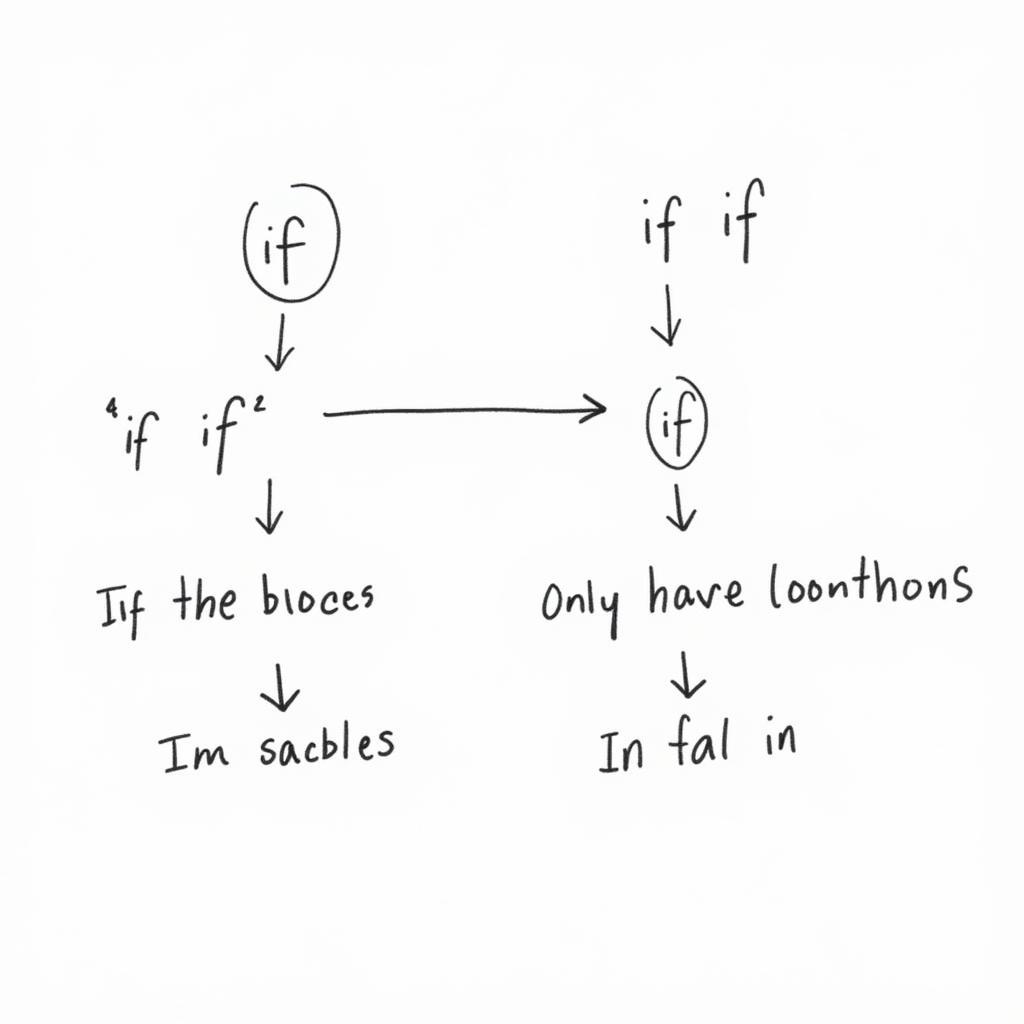if if and if else are fundamental control flow structures in programming. Understanding their differences and effective usage is crucial for writing efficient and readable code. This guide delves into the nuances of these structures, exploring their applications and providing practical examples to solidify your understanding.
 So sánh if if và if else
So sánh if if và if else
Understanding if if Statements
The if if structure essentially involves two independent if statements placed consecutively. Each statement’s condition is evaluated irrespective of the outcome of the other. This means both conditions can be true, only one can be true, or neither can be true. This structure is useful when you need to perform different actions based on separate conditions that don’t influence each other. For example, in a game, you might want to check if a player has collected enough points to level up and separately check if they have triggered a specific event.
Practical Examples of if if
int score = 150;
boolean eventTriggered = true;
if (score > 100) {
// Level up player
}
if (eventTriggered) {
// Execute event-related actions
}Exploring if else Statements
Unlike if if, the if else structure creates a chain of conditions. The program evaluates the first if condition. If it’s true, the corresponding block of code is executed, and the remaining else blocks are skipped. If the first condition is false, the program moves to the next else if condition (if any) and so on. The else block at the end is executed only if none of the preceding conditions are met. This structure is ideal for situations where you need to choose one action from multiple mutually exclusive possibilities. Consider an e-commerce platform where you offer different discounts based on the cart value.
Practical Examples of if else
double cartValue = 250;
if (cartValue > 500) {
// Apply 20% discount
} else if (cartValue > 200) {
// Apply 10% discount
} else {
// No discount
}Looking for more insights on conditional statements? Check out our article comparing elseif vs else if.
When to Use if if vs. if else
Choosing between if if and if else depends on the specific logic you need to implement. Use if if for independent conditions where multiple actions can be performed. Use if else for mutually exclusive conditions where only one action should be executed.
You might find our articles on php switch case vs if else performance and identify vs determine helpful for further reading on related topics.
Conclusion: Making the Right Choice with if if vs if else
Understanding the distinction between if if and if else is essential for writing effective code. By applying the right control flow structure, you can ensure your program’s logic is clear, concise, and performs as intended. Mastering these fundamental concepts will significantly enhance your programming skills.
You might be interested in reading more about chelsea vs al hilal or plants vs zombies 2 china for unrelated but interesting content.
FAQ
- Can I nest
if elsestatements within anif ifstructure? - How can I improve the readability of complex
if elsechains? - What are some common mistakes to avoid when using
if ifandif else? - Are there alternative control flow structures to consider besides
if ifandif else? - How does the performance of
if ifcompare toif else? - Can I use logical operators like AND and OR within
ifconditions? - What are the best practices for using
if ifandif elsein different programming languages?
Khi cần hỗ trợ hãy liên hệ Số Điện Thoại: 02838172459, Email: truyenthongbongda@gmail.com Hoặc đến địa chỉ: 596 Đ. Hậu Giang, P.12, Quận 6, Hồ Chí Minh 70000, Việt Nam. Chúng tôi có đội ngũ chăm sóc khách hàng 24/7.